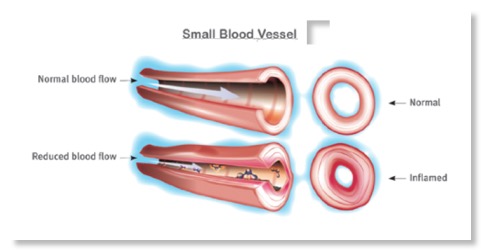
Wegener's Granulomatosis
Granulomatosis with Polyangiitis, also known as Wegener's Granulomatosis or just Wegener's is a rare and deadly form of vasculitis. It is distinguished from other forms of vasulitis by the presence of granulomas and certain blood tests. The most determinant blood test is the C-ANCA.
Wegener's is extremely difficult to diagnose as its symptoms in the initial phase are not distinguishable from the symptoms of many other common diseases. These include symptoms such as aches, difficulty breathing, sinus congestion, and chest pain. It is generally only diagnosed after many other common diseases have been ruled out. As such, because of its rarity and indistinguishable symptoms, it is considered one of the ultimate zebra diagnoses.
Wegener's is a frequent differential on the TV show House, but it only appeared at the end of Season 7, where is was almost mistaken for cancer. This was not a stretch as both conditions respond well to chemo therapy and the granulomas can be mistaken for tumors, particularly where they cannot be biopsied.
Until the widespread development of steroids and immunosuppressants, Wegener's was a virtual death sentence with most patients dying within a year of diagnosis. However, modern steroids and immunosupressents can control the disease, although they cannot cure it. Most patients now live a normal life span, although they may suffer from flare-ups of symptoms from time to time.
What is GPA and MPA?
Granulomatosis with Polyangiitis (GPA) (formerly known as Wegener's Granulomatosis) and Microscopic Polyangiitis (MPA) are two types of ANCA-associated vasculitis, or AAV. AAV is a form of vasculitis that primarily affects the small blood vessels in your body. In general, AAV affects the sinuses, kidneys, lungs, and skin, but the ways the diseases show themselves vary.
About ANCA-Associated Vasculitis (AAV)
AAV causes inflammation in the small blood vessels. This inflammation may cause the layers of the blood vessel wall to thicken, which narrows the blood vessel and reduces the amount of blood that can flow through it. This reduction in blood flow can cause serious problems and even damage the body's organs.

ANCAs play a role in GPA and MPA
Antibodies are found in the blood and are produced by the immune system. Their job is to fight germs and other outside invaders. But in GPA and MPA, a harmful type of antibody known as an autoantibody (pronounced aw-toh-AN-ti-bod-ee) is produced. The autoantibody often involved in GPA and MPA is known as ANCA. ANCAs act against the body’s own healthy tissues and cells. They cause inflammation that targets and attacks the blood vessel walls in different organs in the body.
ANCAs are usually present in GPA and MPA, but there are times when this is not the case. Your doctor will perform a blood test to look for ANCAs.
Marked by periods of flares and remission
In GPA and MPA, there are periods of flares and periods of remission. Flares occur when your symptoms worsen or new symptoms appear. Remission, on the other hand, is a long or short period of time after a flare when symptoms are controlled or go away.
Since GPA and MPA are chronic diseases, they never completely go away. So even when you are in remission, your doctor may prescribe other therapies to control your disease. Keep in mind that everyone's experience is different, so it's hard to predict when a flare may occur.
https://www.rituxanforgpampa.com/about-gpa-mpa.html
Right tympanoplasty with mastoidectomy
This is a surgery showing a tympanoplasty (repair of ear drum perforation) and mastoidectomy (removal of infection from the bone behind the ear). This surgery is also called a tympanomastoidectomy. It is performed on the right ear.
Additional information:
https://www.hopkinsvasculitis.org/types-vasculitis/wegeners-granulomatosis/
https://www.youtube.com/watch?v=i3zZpIpn8sM&feature=youtu.be
Help find a cure for this disease by supporting the Vasculitis Foundation.
www.vasculitisfoundation.org